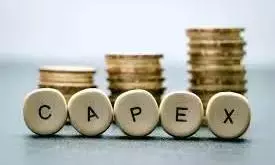'Govt to dispose of 5.5 lakh tonnes pulses from buffer stock'
Around 2 lakh tonnes of pulses will be given for consumption under various central welfare schemes.;

New Delhi: Saddled with a buffer stock of 18 lakh tonnes of pulses, Food Minister Ram Vilas Paswan on Wednesday said the Centre will dispose of immediately about 5.5 lakh tonnes of dals at lower rates to five states and for central welfare schemes like midday meal programme.
For the first time, the government had last year decided to create a buffer stock of pulses to ensure better prices to farmers and at the same time use the stock to augment local supply in times of price rise. About 20 lakh tonnes of buffer were created through local procurement and imports.
"We still have a buffer stock of 18 lakh tonnes in our godowns. We have decided to dispose of some quantity to states and also use in welfare schemes," Paswan told reporters.
Around 3.5 lakh tonnes of pulses will be given at a lower rate to five states -- Karnataka, Gujarat, Tamil Nadu, Andhra Pradesh and Telangana, he said. Around 2 lakh tonnes of pulses will be given for consumption under various central welfare schemes like midday meal programme, for which a cabinet nod will be taken soon, he added.
The minister also mentioned that some quantity is already being sold in the open market via auction route. About 2 lakh tonnes have been sold via auction so far but the ministry's target is to dispose of 4 lakh tonnes of pulses, as per the ministry's data. Paswan said a substantial quantity of pulses will be sold immediately other than the auction mode and this will reduce the burden.
"If atleast 10 lakh tonnes of pulses is cleared from our stocks, then we will be able to manage with rest 10 lakh tonnes easily. We will clear older stocks first," Consumer Affairs Secretary Avinash Srivastav told PTI separately.
It may be noted that the government had last year procured pulses initially at market price to boost local supply and check retail prices, but when the crop was bumper and prices crashed, it started procuring at the support price.
Most pulses prices in retail markets are still ruling lower at present. The country had produced a record 22.95 million tonnes in the 2016-17 crop year (July-June) buoyed by good rains and higher support prices.


